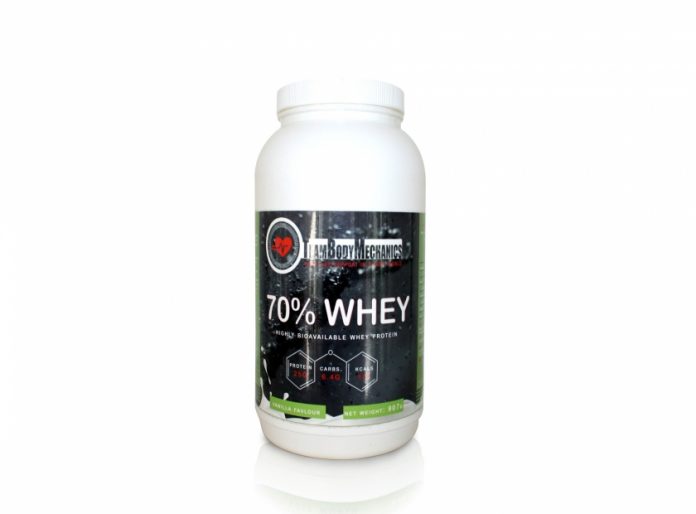Milk has two main components. Curds and whey. Whey is the liquid portion which it contains proteins, fats, vitamins, and minerals.
For muscle gains, supplementation with a quality protein is absolutely essential and the best absorbed form is whey. Whey protein is easy and convenient to take and is rapidly absorbed by the muscles where it exerts powerful anabolic effects.
The different kinds of whey proteins relate to the different stages of preparation to when it reaches the end consumer.
Whey concentrate is the first step. It is when the manufacturer takes the separated whey and filters out the main impurities. This could be 35% to 80% protein by weight = a huge variation in the amount of protein in the powder. 20 grams of powder which is 50% in weight only results in 10 active grams of protein in a concentrate. The higher the % of protein by weight, the higher the amount of lactose which could result in gut problems for consumers who are lactose intolerant. When concentrate will also contain immune boosting properties such as lactoferrin. Whey concentrate also is absorbed slightly slower than other forms of whey protein as it contains some fat and carbohydrates which delays the gastric emptying when compared with a whey isolate.
When whey concentrate is processed, it becomes whey isolate which has other advantages and disadvantages. Whey isolate should be at least 90% protein by weight so for every 10 grams there will be at least 9 grams of active protein. Because almost all of the lactose is removed when the whey concentrate is processed there are fewer issues with lactose intolerance. In addition the lactoferrin may be removed as the whey protein is broken down into smaller peptides (depending on how the whey concentrate is processed). Whey isolate can be prepared using an ion exchange method (heat and chemicals such as hydrochloric acid and other agent which potentially denaturises the whey protein by breaking down the lactoferrin and other fractions) or cross-flow microfiltration (which does not denaturise the whey protein because it is not exposed to heat and uses cold temperatures to split the protein fractions apart).
When whey isolate is processed it becomes hydrolysate (hydrolysed) protein. This is the fastest absorbed form of protein because it is almost completely broken down to all it individual peptides. All of the quanternary structures of protein (the lactoferrin and immune-boosting subfractions) are destroyed. This reduces the potential allergenic properties of the whey protein and completely frees all of the amino acids from the rest of their protein chains.
So when considering the right whey protein for you, you should consider whether or not you are lactose intolerant and whether or not you want to benefit from the immune-boosting qualities of the when protein concentrate.























[…] https://www.theleader.info/2016/11/30/everything-need-know-whey-p… […]